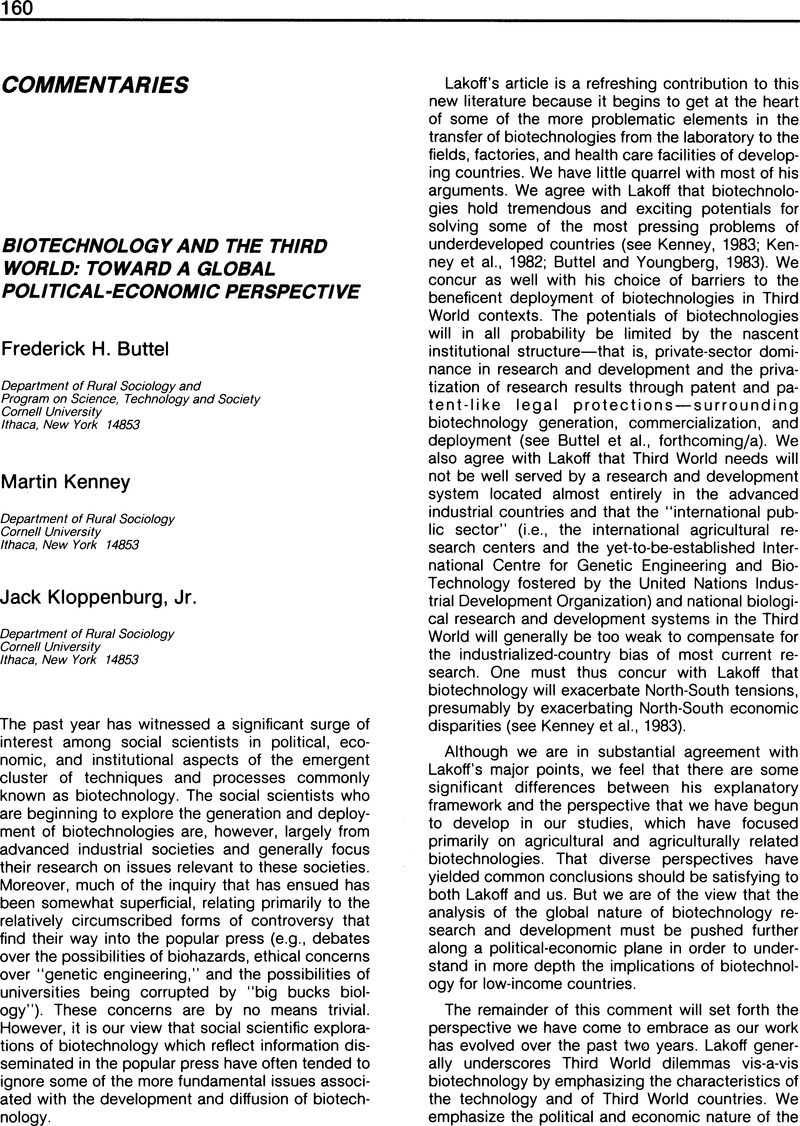Published online by Cambridge University Press: 17 May 2016

1. The evolution of state policy with regard to biotechnology and other high-technology sectors is reviewed inCowan, and Buttel, (1983).Google Scholar
2. By “national capital,” we mean private enterprises that are owned and managed primarily by individuals or other firms located in the particular Third World country (see alsoEvans, , 1979).Google Scholar
3. Many of the small, venture-financed biotechnology firms may ultimately be no more than contract research companies. Their “products” in this case would be genetically manipulated microorganisms to be used in the production processes of large multinational firms. However, it also seems clear that at least some of these biotechnology firms—for example, Genentech, Cetus, Genex, and Biogen—will become independent companies in their own right. Whether a successful small biotechnology firm would be purchased by a multinational is currently open to question because present stock market valuations are so high—in other words, a potential takeover would be very expensive. It should also be noted that the biotechnology firms financed by venture capital that have been acquired by large multinationals to date have tended to be marginal or distressed financially.Google Scholar
4. A number of countries—most notably India, Brazil, Mexico, and Thailand—have begun to develop national biotechnology research programs. However, it remains unclear the degree to which even this handful of relatively privileged Third World countries will be able to compete with the private and public research programs of the advanced industrial nations.Google Scholar
5. In factDorfman, (1983:48) has reported that the U.S. Office of Science and Technology Policy issued a report (subsequently suppressed) calling upon the U.S. government to “pursue unfair trade practices” to discourage foreign competition.Google Scholar